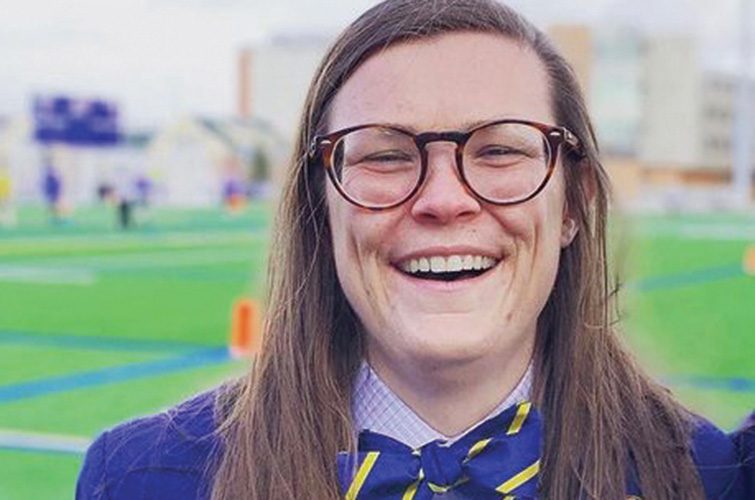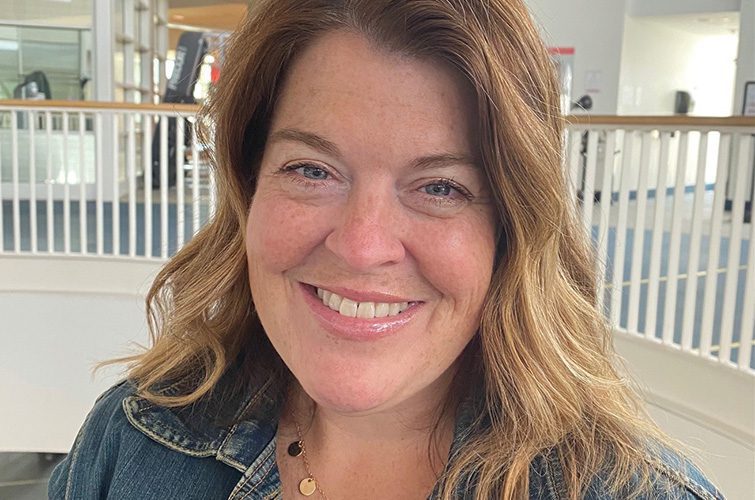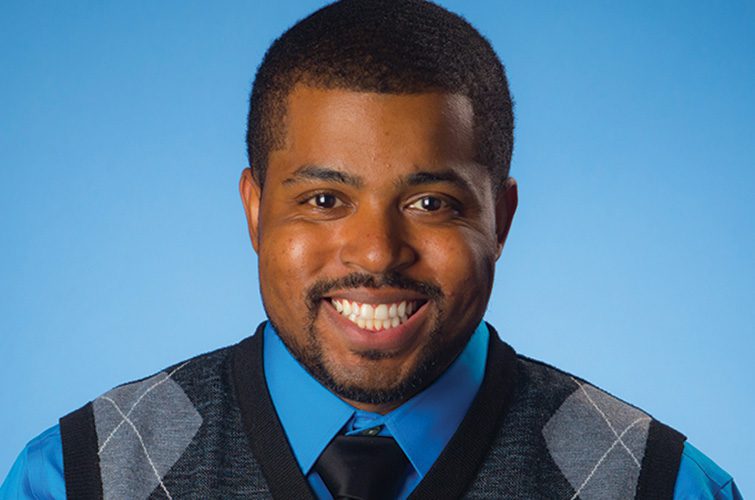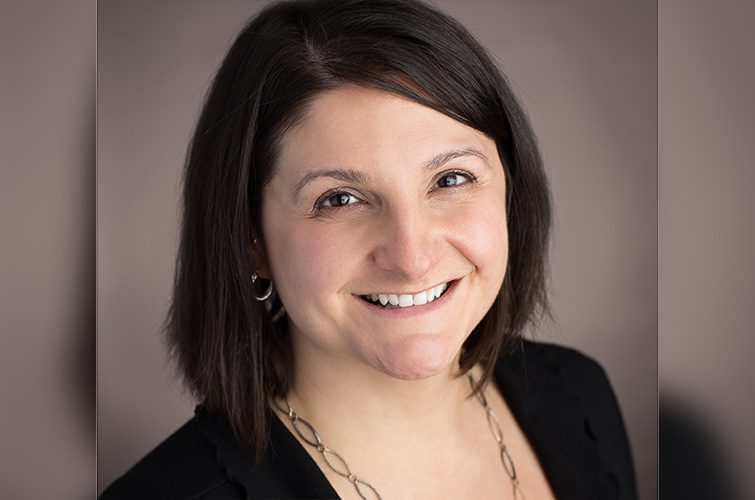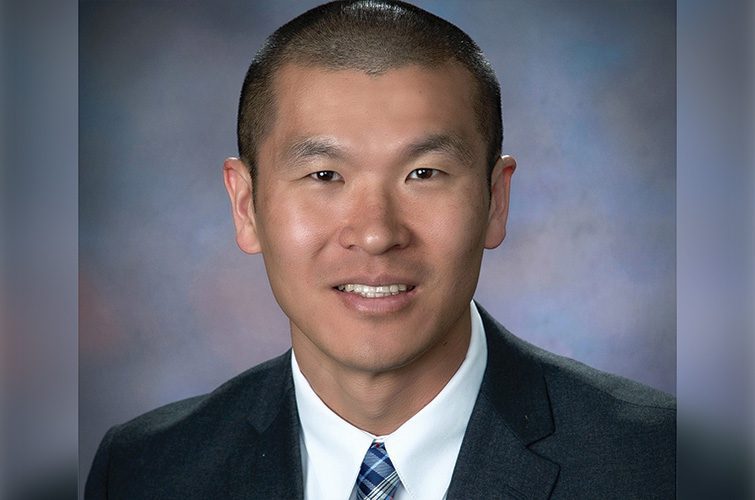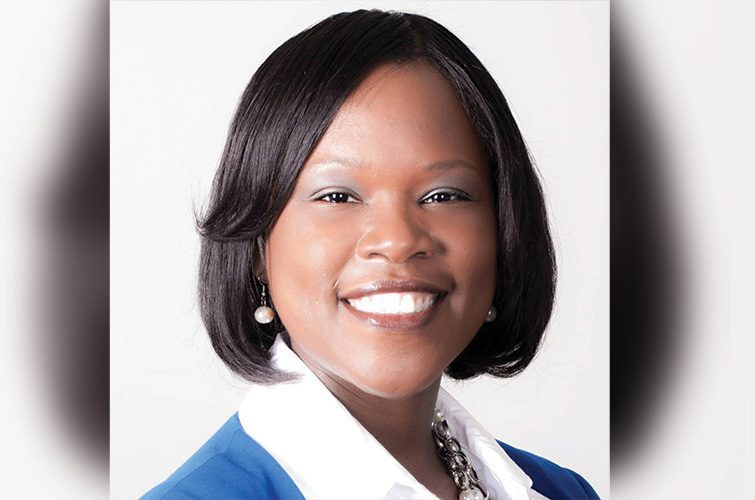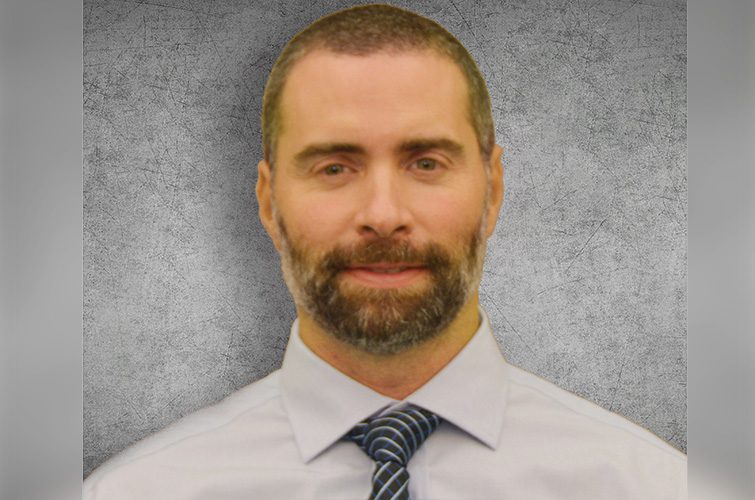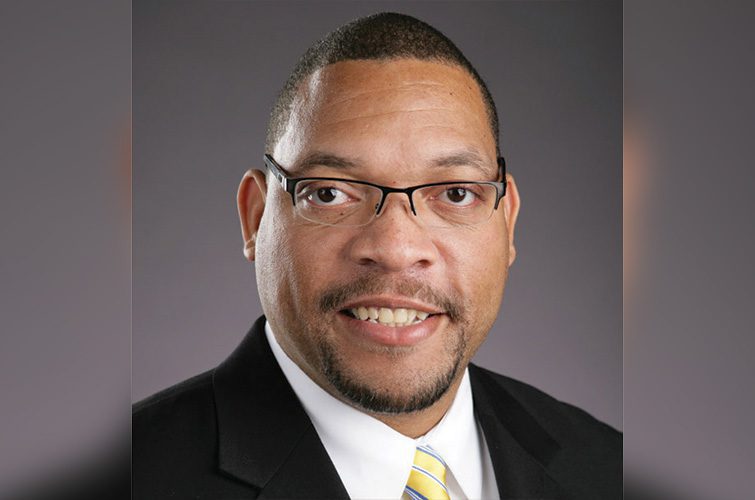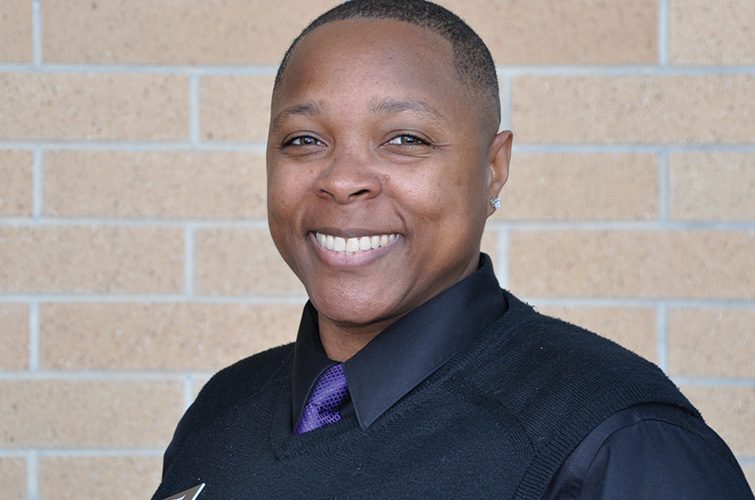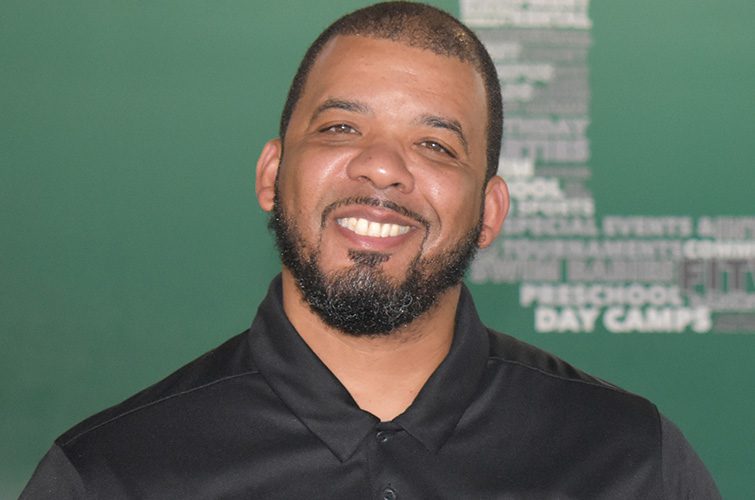It’s time to shine the spotlight on individuals in the campus recreation industry who have been nominated for their work in diversity, equity and inclusion (EDI).
However, there are two past leaders who were nominated that deserve recognition for their work. They are Horace Moody, Sr. and Tony Clements.
Moody, Sr. was a founding member of NIRSA and spent many years as the director at Southern University Baton Rouge. Clements was the director at the University of Illinois in Urbana-Champaign. He was also an active member of NIRSA for 45 years. Here is what was shared:
“Horace was a quiet behind-the-scenes guy. He was very wise but seldom confrontational and waited often to be asked his opinion … He was never interested in holding offices, but his wisdom and counsel was invaluable to so many in the field.”
“Tony was a hilarious entertainer as well as a fine leader … He served in many roles which included NIRSA president in 1989.”
Both were awarded the Honor Award during their time in the field. In fact, Southern University Baton Rouge name its Horace Wesley Moody, Sr. Intramural Sports Complex after Moody, Sr. in 2013. It looked to honor the life and legacy of a great man.
Both men pushed the needle forward in the campus recreation industry. And they weren’t — and still aren’t — among the only ones to do so.
As you read the nominations and what each campus recreation leader is doing at their facility, be inspired. The legacy of great innovation, change and commitment to work on EDI has continued through the years.
Let’s make sure that doesn’t ever change.
Main Image Courtesy of Shutterstock
Allie Bogard
Coordinator of Intramural and Club Sports, Montana State University
What is one EDI initiative that is important to your department?
AB: Our most important EDI initiative in our department is our collaborations with campus partners, as in working with our Diversity and Inclusion Student Commons (DISC) to expand programming to students that traditionally aren’t included, especially at a predominantly white institution. This includes, but is not limited to:
- Conversations around the various disenfranchised student populations and how we can connect support.
- Resources and opportunities for engagement via diverse recreational and wellness activities.
Outside of the departmental collaborative events, I focus on training and development for student employees and club sport officers.
What is an example of an EDI initiative at your facility that could inspire other campus rec departments?
AB: I am most excited about an effort that myself and my colleague, Dan Sandberg, are implementing this academic year with our campus partners called the “Inclusive Recreation and Wellness series.” The goal is to celebrate underrepresented student populations each month throughout the school year by capitalizing on previously established cultural and/or identity-based celebration months. Some examples of this are:
- LGBTQ+ Pride Month and collaborating with our Queer Student Alliance.
- Black History Month with our Black Student Union.
- Native American Heritage Month with our American Indian Council and Native Student Groups.
- And many other offices — i.e. International Programs, Veteran Services, Women’s Center, Office of Disability Services, etc. — for a collaborative celebration event each month from August through May.
Allie’s Nomination: “Allie is a young professional and very active in social justice topics/actions, especially regarding sexual orientation and gender identity issues.”
Kris Covarrubias
Assistant Director of Marketing, Communications and Public Relations, Boston University
Why are EDI initiatives important to your department?
KC: Our plan has four themes: education, participation, assessment and programming. Every strategic goal our EDI team has relates to one of those themes and applies to our own staff as well as our program participants. We have even added a section to our department-wide annual report that specifically reports out on our EDI efforts. Organization, planning and evaluation has been key.
What is an example of an EDI initiative at your facility that could inspire other campus rec departments?
KC: Our EDI Team leads what we call a “mini lesson” at our all-staff meetings once a month to look at how we can more fully incorporate EDI into all of our programs. Topics have ranged from creating anti-racist policies, using inclusive language, how we present ourselves in marketing/social media and program area case studies. Over the past year, we have used break out rooms within the context of larger staff meetings to discuss the topics and apply to each of our own areas. These mini lessons have been a great source of learning and program improvement, as well as staff and team development.
In addition to the mini lessons, our EDI team offers optional 90-minute monthly discussions where we are able to be more self-reflective and conversational.
Kris’ Nomination: “Kris has been instrumental in developing and leading our departmental EDI Committee by serving as Policy Committee Leader and Discussion Committee Leader, authoring the development of a strategic plan and annual report for the EDI Committee, and completing a certificate program on diversity and inclusion from Cornell University.”
Greg Durham
Director of Recreation and Wellness, Creighton University
Why are EDI initiatives important to your department?
GD: EDI initiatives are important to Creighton Recreation and Wellness because as a Catholic, Jesuit institution we are called to meet people where they are at. We believe strongly in the idea of being inviting and welcoming. It’s not enough to expect students to walk through our doors. We extend the olive branch. We go to those students, faculty and staff groups that serve underrepresented populations to learn more about how we can serve those groups better.
What is an example of an EDI initiative at your facility that could inspire other campus rec departments?
GD: Recreation and Wellness has made the commitment to our students, faculty and staff that all new programs and services would be designed in a way that is accessible to all groups regardless of ability or other quality. For example, we do not create new sports, events or programs in inaccessible spaces.
Greg’s Nomination: “Greg Durham is an outstanding professional who has already demonstrated solid leadership skills. He is currently serving on the NIRSA Member Network, representing Region V. When the pandemic hit, he corralled all the Big East directors to meet monthly in order to share strategies, information and to strengthen our network. He is a good guy.”
Leigh Ann Garstecki
Director of Fitness and Wellness, Duke University
Why are EDI initiatives important to your department?
LAG: Campus Recreation has a unique opportunity when it comes to the impact we have on our students and campus community. Between those who use our facilities, participate in our programs and work for us, we engage on so many different levels with various groups. We have a responsibility to be a place where all feel welcomed and wanted.
What is an example of an EDI initiative at your facility that could inspire other campus rec departments?
LAG: Last summer we formed an Anti-Racism Commitment Group. Our first project was creating a personalized Departmental Internal DEI Review comprised of 31 questions. We created a 360-review process. Each area of our department was tasked with completing this review and submitting to our group for assessment — 11 reviews in total. After feedback was documented, it was passed along to our leadership team to then assess. We are at the point now where we will be giving all information back to our staff to make changes. From there, they will create an area roadmap used to complete a departmental roadmap. These roadmaps will lay out our top priorities and goals. This is where it all begins, and I would encourage other departments to do something similar.
Leigh Ann’s Nomination: “She is someone who recognizes different body types and barriers to participation which led her to create a women’s leadership program to introduce and support women’s engagement more broadly across all aspects of recreation. She has also provided outstanding leadership to an 11-member Anti-Racism Committee, which has required personal reflection, and departmental assessment and engagement with new learning resources.”
Kevin George
Director of Campus Recreation, Rowan Thrive Well-Being Committee, Rowan University
Why are EDI initiatives important to your department?
KG: Our offerings are for anyone regardless of their abilities and identities. Our department has taken measures to reduce/remove barriers and review access in all areas including facilities, programs, services and staffing. Creating a safe, welcoming and inclusive environment is a component of our mission statement, so we have been reviewing and revising all aspects of our department.
Additionally, we want to continue to meet and exceed the diversity of the staff represented from professional staff, graduate assistants and student employees to the university average. We plan to be more intentional in reaching out to the Social Justice, Inclusion and Conflict Resolution Centers that would invite individuals from the LGBTQ+ and Multicultural Centers, share our positions with the Office of Disability Resources, as well as promote employment opportunities with our student organizations that are aligned with underrepresented identities.
What is an example of an EDI initiative at your facility that could inspire other campus rec departments?
KG: We made a commitment to add a 30-to-45-minute discussion, reflection or educational session to each of our bi-weekly departmental meetings with professional staff and graduate coordinators in Spring 2021. In addition, we had two retreats to advance the dialogue with our professional staff team. Our departmental diversity, equity and inclusion committee facilitated these sessions with articles, videos and resources prior to the meeting so individuals could actively participate in the topic. For many individuals, some discussions provided eye-opening experiences and showed a lack of knowledge of so many areas of social justice and inclusion we take for granted on a daily basis.
Kevin’s Nomination: “With our virtual setting, I have been able to connect with Kevin and he has been such a positive light. He has a great presence about him, is very knowledgeable and has opened up about his experiences growing up and being the ‘different kid.’ If I were to nominate someone, it would be him.”
Sophia Marshall
Senior associate director of University Recreation, University of North Carolina at Charlotte (UNC Charlotte)
What EDI initiatives are important to your department?
SM: Over the past year, the three main EDI initiatives that were most important to the University Recreation Department (UREC) at UNC Charlotte were the UREC Program Review for Equity, Diversity and Inclusion; establishing a UREC Women of Color Group for our student employees; and the UREC Diversity, Equity and Inclusion book club that read “Biased” by Jennifer L. Eberhardt and “So You Want to Talk About Race” by Ijeoma Oluo.
What is an example of an EDI initiative at your facility that could inspire other campus rec departments?
SM: UNC Charlotte UREC was very intentional about diversity and inclusion with our graphics package during the construction of our University Recreation Center, which opened in January 2020. We wanted to make sure when a student, faculty/staff, or alumni stepped into our building, they could see themselves in our facility. Therefore, we had numerous photo shoots — both open call and personal invitations to participate — of very diverse students, faculty and staff, and alumni so we would have options when putting together the graphics for the building.
However, we still received feedback during the Fall 2020 semester that the stereotype of UREC was, “it’s for students who are already ‘in shape.’” Therefore, we implemented the following marketing campaign during Spring 2021: UREC is for EveryBODY! All Shapes/All Sizes/All Ages/All Fitness Levels/All Ability Levels. You can see this campaign not only in our building but all over campus and on our social media. For Fall 2021, we will continue to expand on this campaign.
Sophia’s Nomination: “Sophia has been on staff for 20 years and has been a leader not only for campus recreation but in efforts to ensure EDI in our department and on campus. In my time working with her, she has always demonstrated at high levels actions and words to help educate on and understand EDI, as well as lead by example.”
Peter Murray
Director of Campus Recreation, University of Massachusetts Lowell (UMass Lowell)
Why are EDI initiatives important to your department?
PM: UMass Lowell is a very diverse community, and I’ve seen this diversity work in so many ways. That said, in order for everyone to feel welcomed, valued and included, it takes effort. The work we do to consider equity and social justice in every aspect of our work makes campus rec better for everyone.
What is an example of an EDI initiative at your facility that could inspire other campus rec departments?
PM: Our most significant EDI initiative is a program we call Inclusive Campus Rec. This is led by a team of staff and students who come together to make Campus Rec more inclusive, equitable and just for all members of our campus community. As a group, we take ownership of EDI training for all our student staff members and club sport officers, as well as reach out to student groups to learn from their experiences related to Campus Rec. With that knowledge we make changes the team believes will continue our progress toward our EDI goals. Ultimately, our goal is for every staff member to be able to see their role through an EDI lens. Then, they can use that perspective to create a better experience for everyone.
Peter’s Nomination: “Peter and some of his team members led a roundtable with the Massachusetts recreation professionals, sharing their strategies from the last six years. Peter created the Inclusive Campus Rec team back in 2015. He has made EDI foundational in UMass Lowell’s recreation culture, messaging, staff training and response.”
Demond Pryor
Director of Recreational Services, University of Toledo
What EDI initiatives are important to your department?
DP: As a department, we focus on making our facilities and programs diverse. We are working to build a culture of inclusion and equitable experiences for all who engage with the Office of Recreational Services. Our goal is to make sure all members, guests and staff have a sense of belonging as we celebrate them as human beings.
What is an example of an EDI initiative at your facility that could inspire other campus rec departments?
DP: An EDI initiative we as a department have done, which I feel would be a great takeaway for other collegiate recreation departments, is to celebrate various heritage months. This has allowed us to place a spotlight on the many different identities of our campus population.
Demond’s Nomination: “Demond exudes leadership and development in every interaction. His commitment to higher education is shown through his dedicated career and service to the overall recreation and wellness community. Demond’s passion for diversity and inclusion is reflected in his department’s continued efforts to promote EDI work in everything they do.”
Andrea Snead
Assistant director of Sport Clubs/Inclusive Recreation/Risk Management, University of Central Florida (UCF)
What EDI initiatives are important to your department?
AS: Establishing opportunities for student staff to participate in our Diversity Committee and hiring processes. Developing relationships with the Social Justice and Advocacy Department. Creating space for open dialogue and diverse program offerings. Providing inclusive programming geared toward students with disabilities but is open for all to participate, such as sitting volleyball.
What is an example of an EDI initiative at your facility that could inspire other campus rec departments?
AS: Five years ago, I wanted to open dialogue for students and staff with our on-campus police department. From this blossomed incredible relationships, bonds and opportunities to be involved with hiring and trainings at the UCF police department. Since then, we have facilitated more dialogue with our police department. All of these conversations happened in our rec center. It was important to meet the students where they were. Breaking down the walls and barriers that have been built over time between marginalized groups and police departments — and even between college students in general and their on-campus police departments — has been a byproduct of these conversations. I would encourage other departments to do something like this. The choice of facilitator is critical as well as buy in from leadership and building a partnership with your campus diversity departments.
Andrea’s Nomination “I would like to nominate Andrea for her tireless effort in education, encouragement and support of EDI. She is outward in her support, facilitating discussion after discussion and caucus after caucus to give people a safe space to share, support and voice their concerns. She also intentionally reaches out to make sure people are OK, responds to concerns and speaks on behalf of individuals who might not have a strong voice. Andrea is one of the most authentic and intentional individuals I have ever met. I stand alongside her and believe she embodies what campus rec celebrating diversity looks like.”
Seneca Wilson
Associate director of Facilities and Guest Services, CENTERS at the University of Alabama at Birmingham (UAB)
What EDI initiatives are important to your department?
SW: First, I think it is extremely important to continuously evaluate the current policies and practices because better is better and we can always improve on the ways we interact with one another. Within CENTERS and across all our locations, we are implementing new practices to improve our recruitment and retention strategies that include improved staff training and EDI awareness. Currently, I serve as the Chair of the Diversity and Inclusion committee and liaise with the HR manager to implement these initiatives. The committee is responsible for building EDI culture awareness through policies and procedures, trainings, events, and on-going open dialogue to continue to move our organization forward.
What is an example of an EDI initiative at your facility that could inspire other campus rec departments?
SW: EDI Event Awareness. We have created several opportunities for our CENTERS staff to participate in diverse events such as EDI Town Halls, No Talent-Talent Shows and a Diversity Cookbook. Through these events we hope to celebrate our similarities and differences, engage our staff to have a sense of belonging, and improve the on-going conversation to make everyone feel welcomed, safe and valued. As a department working at UAB, we believe communication and marketing should reflect the diversity of our university. Through our website, social media and other messaging platforms we strive to be intentional when it comes to EDI awareness. We believe words and pictures matter. And, we want to ensure our students, faculty and staff, and UAB community feel included in everything we do at UAB University Recreation.
Seneca’s Nomination “Seneca is a great mentor to many, active in the Emerging Recreational Sports Leaders Conference, an author and a poet, and amazing at spoken word performance. He has written and performed a piece celebrating William Wasson, NIRSA’s founder. Also, he wrote a piece to honor our 2020 Honor Award recipient. He is kind, passionate and active in our field.”



